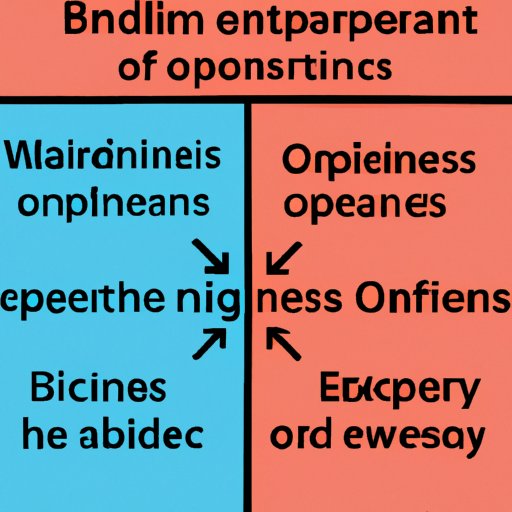Introduction
Open-mindedness is the willingness to consider new ideas or to suspend judgment until all the facts have been considered. It involves a sense of curiosity, a commitment to truth, and a recognition that our own beliefs may not always be right. Being open-minded isn’t just about being tolerant of other people’s opinions, it’s also about understanding why people have those opinions and considering the possibility that they may be right. There are many benefits to being open-minded, including increased creativity, better decision-making skills, and improved relationships with others.

Take the Time to Understand Different Perspectives
One of the most important aspects of being open-minded is taking the time to understand different perspectives. This can be difficult if you have strong preconceived notions or implicit biases about certain topics. To truly become open-minded, you need to acknowledge these biases and make a conscious effort to seek out different points of view.
Start by actively listening to what other people have to say. Ask questions to expand your understanding and challenge any assumptions you may have. You don’t have to agree with what someone else is saying, but it’s important to listen to their perspective and try to understand why they hold that opinion. As psychologist Carl Rogers once said, “The only person who is educated is the one who has learned how to learn and change.”
Make a Conscious Effort to Listen and be Present in Conversations
When having a conversation with someone, it’s important to be present and engaged. This means setting aside any distractions and giving your full attention to the other person. Try to put yourself in their shoes and really listen to what they’re saying without making snap judgments or assumptions.
It’s also important to avoid interrupting and allow the other person to finish their thoughts before responding. This shows respect and demonstrates that you value their opinion. As Mahatma Gandhi once said, “Honest disagreement is often a good sign of progress.”

Reflect on Your Own Biases and Preconceived Notions
In order to be truly open-minded, it’s important to reflect on your own biases and preconceived notions. Take some time to identify any implicit biases you may have, such as racism, sexism, or ageism. Then take a step back and challenge your beliefs and preconceptions. Consider the possibility that you may be wrong and that there could be another point of view that you haven’t considered.
As author Margaret Heffernan once said, “Our minds are like parachutes – they only function when open.” By recognizing our own biases and challenging our beliefs, we can become more open-minded and be willing to consider different perspectives.
Conclusion
Being open-minded is an important skill that can have many benefits. Taking the time to understand different perspectives, making a conscious effort to listen and be present in conversations, and reflecting on your own biases and preconceived notions are all key steps to becoming more open-minded. By doing these things, you can increase your creativity, improve your decision-making skills, and create stronger relationships with others.
(Note: Is this article not meeting your expectations? Do you have knowledge or insights to share? Unlock new opportunities and expand your reach by joining our authors team. Click Registration to join us and share your expertise with our readers.)
